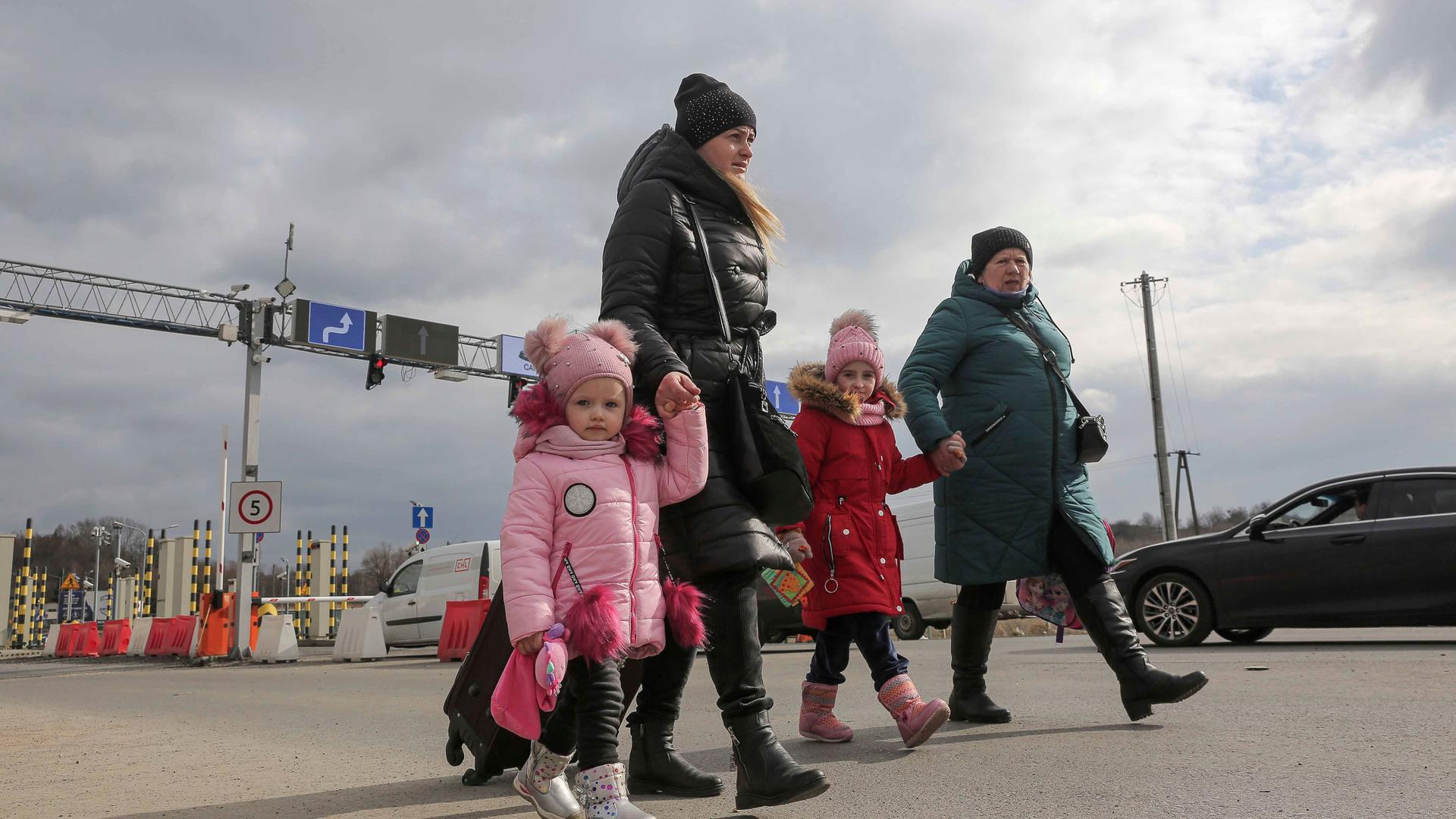There’s a double-standard when it comes to media coverage on refugees, analyst says
Nearly 900,000 people have fled Ukraine since the war there began less than a week ago. They’ve headed west seeking shelter in neighboring European countries.
By and large, Poland, Moldova, Hungary, Slovakia and Romania have welcomed their neighbors. Refugees have been sheltered in repurposed schools, private apartments and conference centers — even wineries.
Related: Poland prepares to accept thousands of refugees from Ukraine
That’s quite a contrast from the reception and treatment of refugees trying to reach Europe while fleeing war in the Middle East and Africa.
H.A. Hellyer, a scholar at the Carnegie Endowment for International Peace, said that there’s definitely a double standard when it comes to how nations approach refugees and asylum-seekers, both in terms of how politicians discuss these situations and how the media cover it.
“Indeed, many people die in the Mediterranean Sea just trying to flee from war, because we don’t want to have all of these brown people and Black people coming into ‘fortress Europe,’” he said.
Related: ‘The Kremlin really controls the armed forces of Belarus,’ analyst says
The contrast with how the media and politicians portray Ukrainian refugees is stark and blatant.
Over the last week, Western media have commented on perceived commonalities with Ukrainian refugees as “European and blond and blue-eyed, [who] use Instagram and Netflix,” Hellyer said.
“I think we have to ask ourselves — why did we not behave like this when even Russian forces were engaged in terrible actions in Syria? Was it simply because they weren’t white and Christian?”
“I think we have to ask ourselves — why did we not behave like this when even Russian forces were engaged in terrible actions in Syria? Was it simply because they weren’t white and Christian?”
The implicit claim with this type of media coverage is that non-Europeans are somehow “used to this sort of thing, they’re going to be refugees because their societies are just basically designed like that,” he said.
Related: ‘It was like a nightmare’: Russians react to news of Putin bombing Ukraine
Hellyer points out that during any conflict, journalists, politicians and policymakers must take their own biases, assumptions and prejudices into account.
These biases play out in the choice to use terms like “refugee” or “migrant,” he said.
Those who flee war zones are refugees who do so out of necessity — whether it’s someone from Syria, Mali or Ukraine.
“We have inbuilt biases that stem from our own position out in the world, our own prejudices, our own privilege,” he said.
To listen to the full story, click the audio player above.
